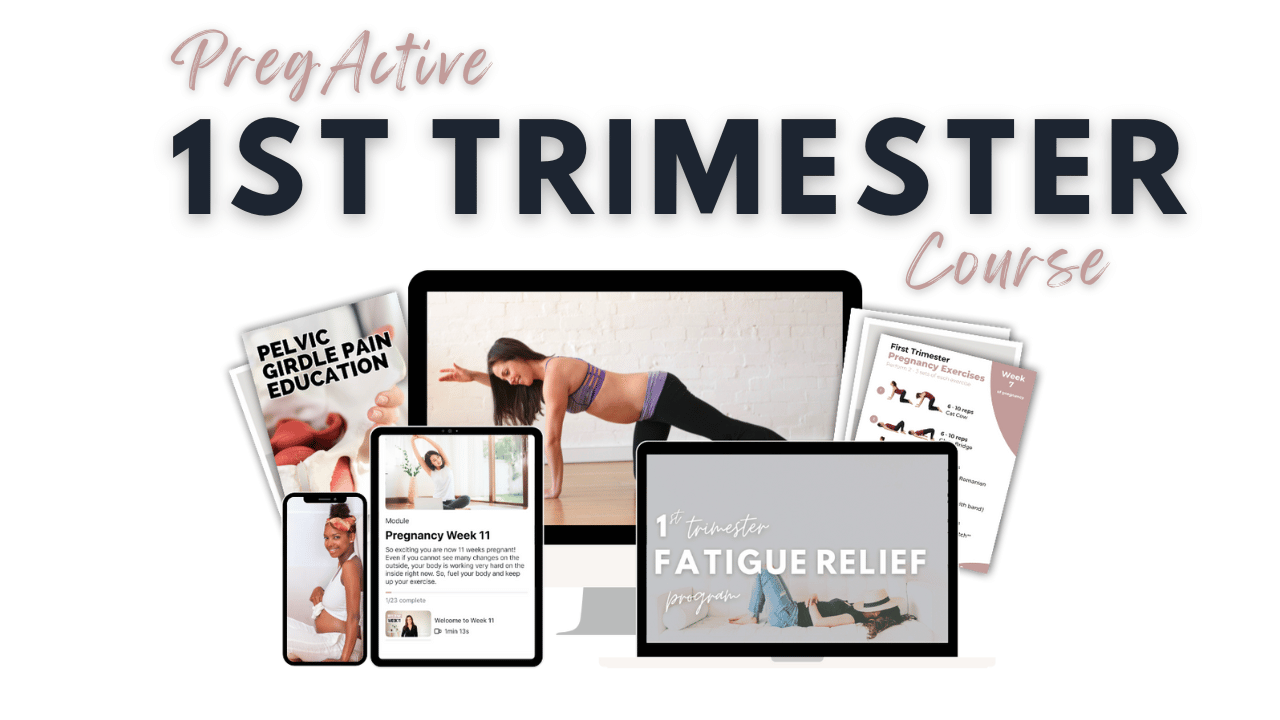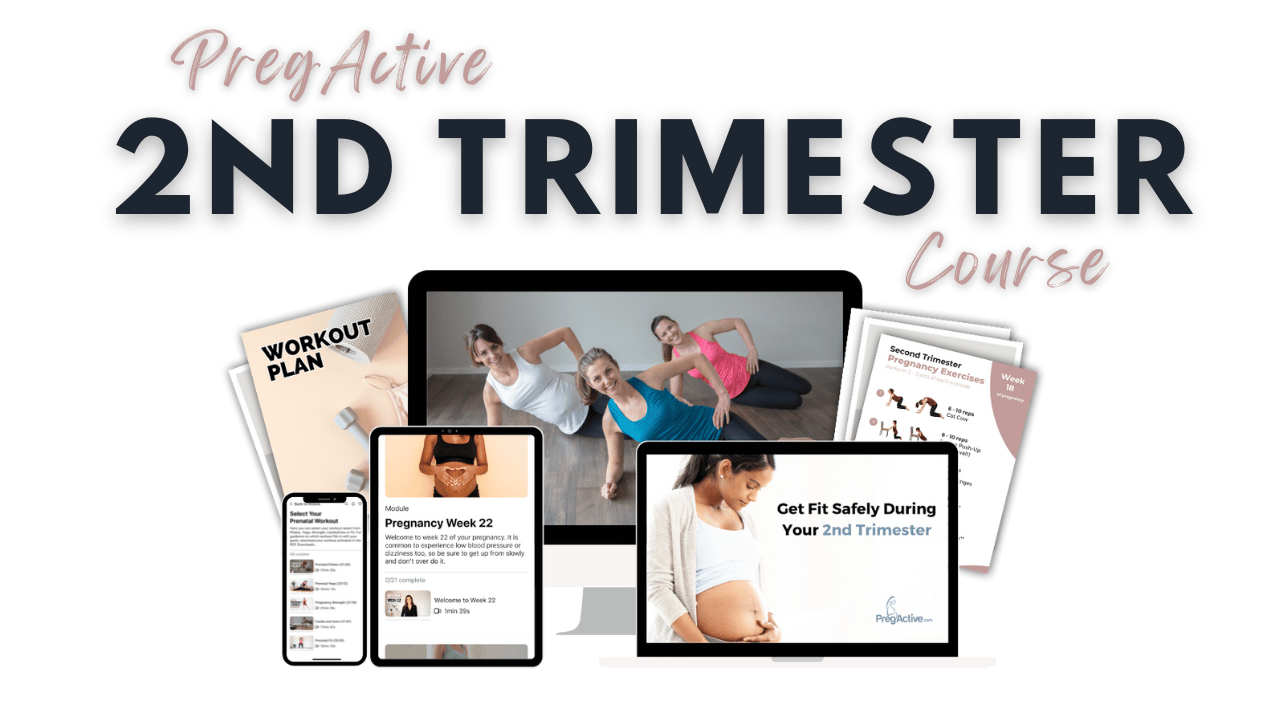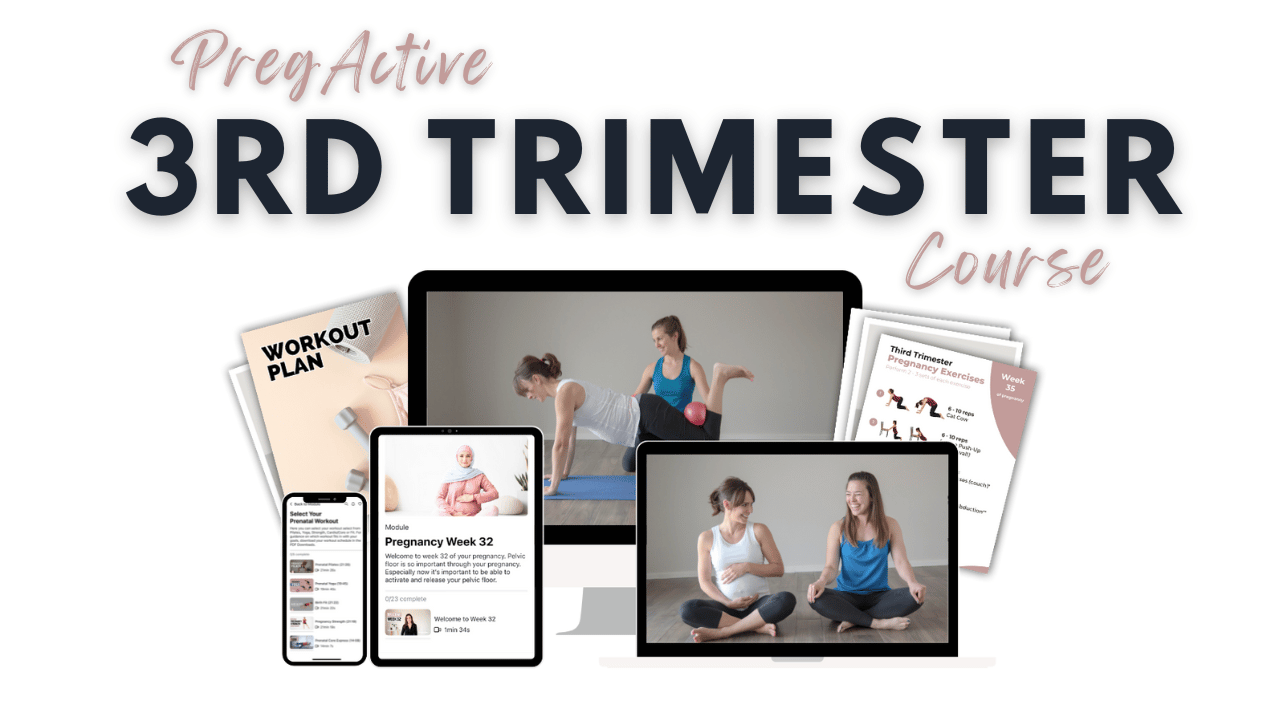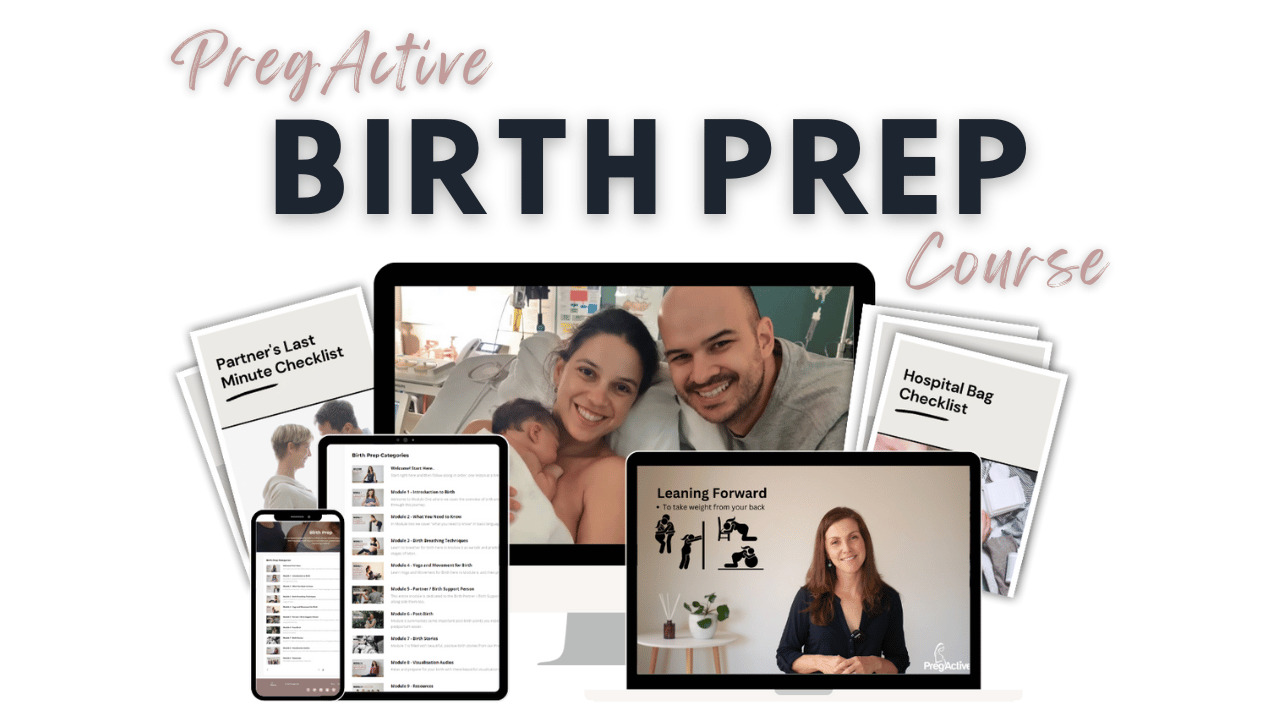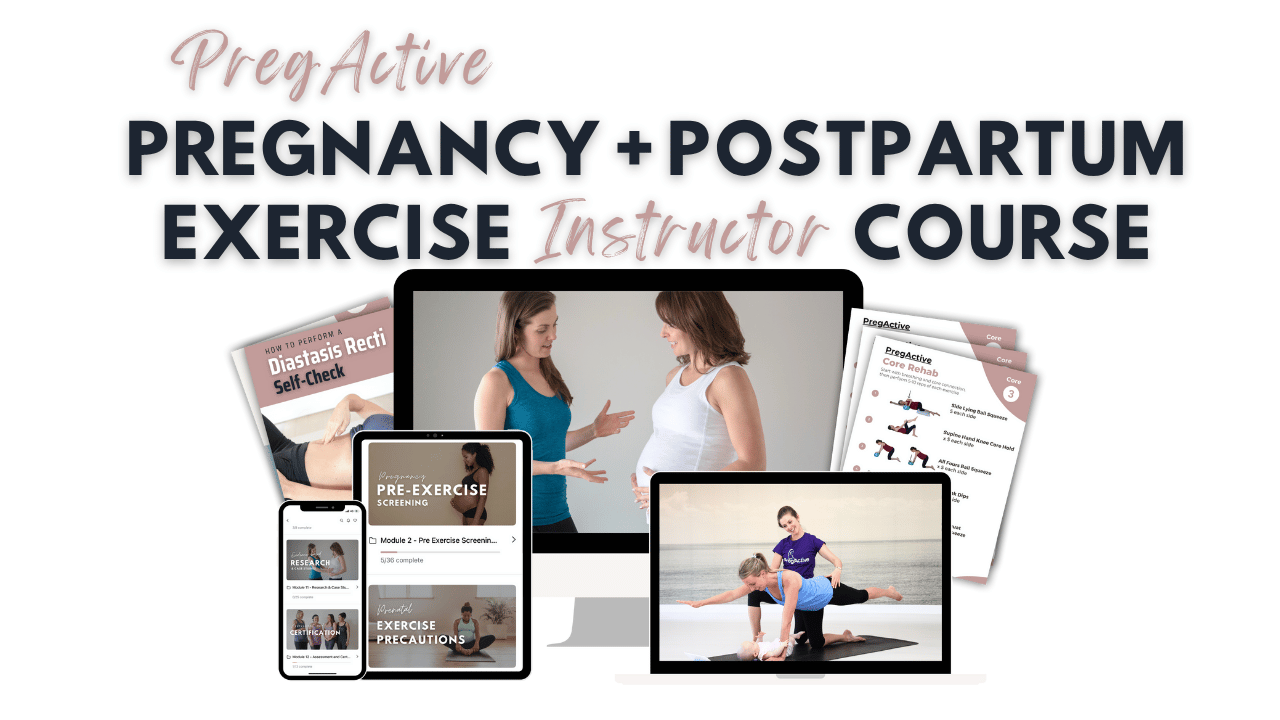Don't Fall for These Pregnancy Exercise Myths!
Jan 30, 2021
Exercising when Pregnant
Let's chat about common pregnancy exercise myths. Unfortunately, there is a lot of contradictory and often misleading information about exercising when pregnant on the internet.
This will only leave you with more questions than answers.
My advice here is to only refer to trusted sources for answers to your questions. After-all, you are now caring for not only your health, but also the health of your growing baby.
Watch Out for Content Marketing Websites!
I want you to be aware that many websites which provide tips about prenatal exercise have no background in working with pregnant women.
In fact, they post articles about 'exercising when pregnant' with the sole purpose of content marketing to drive advertising revenue for these websites. These articles are often written by 'content writers' who have no experience with pregnancy exercise.
They scrape content from multiple sites across the internet and then re-write a post.
These websites just want to get a lot of visitors to their site. They generate content for the sole purpose of driving traffic to their website so they can on-sell products and make money from advertising.
You must identify those qualified and experienced prenatal instructors and eliminate individuals or websites that you should avoid taking advice form.
Myth: You should rest when pregnant and avoid exercise.
There is overwhelming research that appropriate prenatal exercise is beneficial to both you and baby. The governing medical organizations have updated their recommendations for exercise during pregnancy to reflect how important exercise is to a pregnant woman.
You should remain active when pregnant while empowering yourself with the knowledge of which exercises you must avoid during pregnancy. So the reality of it is that exercise when pregnant is good for you.
Here are 6 Benefits for Working out when pregnant:
- May decrease your risk of gestational diabetes and preeclampsia.
- Promotes healthy weight gain during pregnancy.
- Reduces back pain.
- Eases constipation.
- Improves your fitness, strengthens your heart and blood vessels.
- Helps you to lose baby weight after your baby is born.
Myth: You should avoid abdominal exercises.
I cringe when I see women doing certain abdominal exercises during pregnancy (planks, sit-ups) as I know that they are causing more harm than doing good.
However; it is important you continue to strengthen your abdominals with appropriate prenatal core training exercises. Having a strong core will help you to ready for childbirth and will help you to enjoy a speedier postpartum recovery.
You just need to avoid the old traditional crunches and planking that places unnecessary strain on your lower back.
You should also avoid doing exercises on your back after the first trimester as your growing uterus can compress the vena cava (major vessel that returns blood to your heart) which in turn can reduce blood flow. This can make you feel dizzy and nauseated.
Myth: You should avoid exercising when pregnant, if you did not exercise before you got pregnant.
Your body will experience significant changes when pregnant which is why you should be active.
Staying active when pregnant will help you to maintain a healthy pregnancy weight, reduce the risk of high blood pressure and other ailments that can arise from inactivity.
If you have no prenatal medical complications, and have been given the all clear to exercise by your doctor, then you should aim to exercise for at least 20 – 30 minutes each day.
If you were fit before pregnancy then you can increase this to 30 – 60 minutes of appropriate prenatal exercises such as walking, swimming, prenatal yoga and my online pregnancy workouts.
Myth: You should avoid strength training during pregnancy
It is true that you will need to modify your pregnancy strength training program as some exercises you did pre-pregnancy can be dangerous when pregnant.
When pregnant, you may experience issues with balance and the pregnancy hormone relaxin will loosens ligaments as your body prepares for delivery.
So, you can still participate in strength training workouts but you must know which exercises you must now avoid which is a where a qualified prenatal exercises specialist can guide you.
Most personal trainers in gyms lack the experience and knowledge when it comes to pregnancy exercises so be aware of who you are taking advice from.
You can strengthen your body through prenatal yoga and Pilates as well appropriate prenatal strength training workouts.
Myth: You should not run during pregnancy!
As long as there are no changes in your joints and ligaments, you can continue running when pregnant. Be sure to reduce the intensity and distance.
While I recommend that my clients avoid running due to it being a high impact exercise, you can still run if your doctor gives you approval to do so.
Just be sure to not over-exert yourself or raise your body temperature too high. I would much prefer to see you walking instead especially as you enter your third trimester.
Myth: You can continue with a general yoga class when pregnant.
When pregnant, you must modify your workouts and exercises. And yoga is no different. I love yoga and teach it to my pregnant clients. But there are certain yoga poses you must avoid when pregnant.
To learn more about prenatal yoga read this article >
Myth: The body changes you experience during pregnancy don't impact on what exercise you can do.
You are experiencing the most dramatic body changes you will have ever experienced in your life. And these body changes do impact on how you exercise. So please, modify your workouts accordingly with each trimester.
Here are just a few body changes that will impact on how you exercise:
1. Balance
Your growing belly and the extra weight in the front of your body shifts your center of gravity.
This places stress on joints and muscles. As a result, you are; less stable, and more likely to lose your balance and are at greater risk of falling.
Certain exercises that require balance must now be avoided or modified.
2. Joints
The hormones made during pregnancy cause the ligaments that support your joints to become relaxed. What this does is to make the joints more mobile and at risk of injury.
So your workouts need to avoid exercises that are jerky, bouncy, or include high-impact motions.
3. Breathing
When you exercise, oxygen and blood flow are directed to your muscles and away from other areas of your body. During pregnancy, your need for oxygen increases.
This may affect your ability to do strenuous exercise, especially if you are overweight or obese.
So while you may want to push yourself to exhaustion this is not recommended.
So who should you believe?
There are several leading health sites created by government and medical organizations that provide unbiased information so this is always a good place to start. They source matter subject experts and tend to screen each contributor.
Here are a few I would recommend:
1. American College of Obstetricians and Gynecologists (ACOG)
2. The Royal Australian and New Zealand College of Obstetricians and Gynecologists (RANZCOG)
4. Centers for Disease Control and Prevention (CDC)
5. WEBMD
More Questions?
Our online PregActive community forum is a great place to ask questions form our professional prenatal health and fitness experts. When you know you are getting the right information, then you have peace of mind! Or you can send me a direct email.


